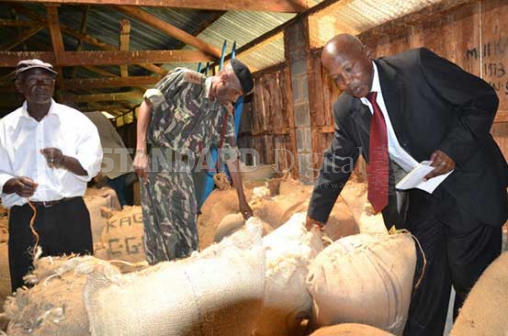×
The Standard e-Paper
Fearless, Trusted News

The emergence of cartels specialising in coffee theft in Central Kenya has left majority of peasant farmers wallowing in poverty. This is besides the numerous challenges facing the once lucrative coffee sector.
Even before the advent of the harvest season, more than 600 bags of parchment worth millions of shillings have been stolen from coffee factories in Mt Kenya region, with Nyeri the worst hit, over the last two months.